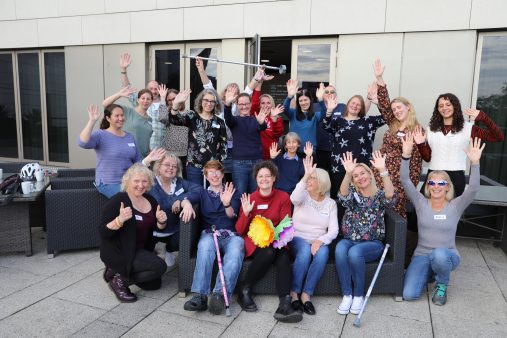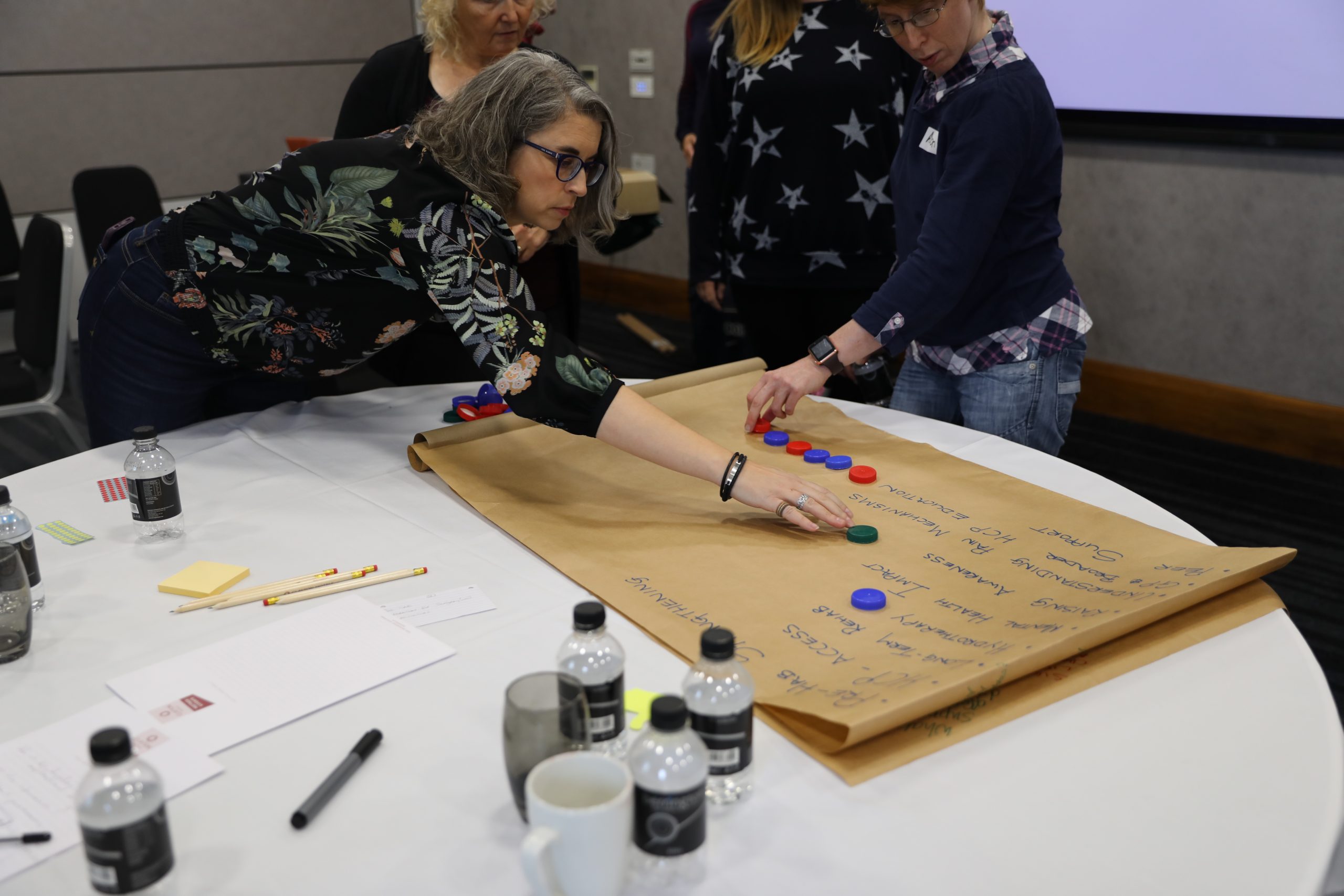Setting Hip Dysplasia Research Priorities For the Future
11 April 2022
Between 2020-2022 Cardiff University researchers and scholars worked intensely with 20 adults with hip dysplasia to:
- Learn about their experiences of starting and staying physically active
- Set research priorities for future hip dysplasia research
- Create a peer support website
Due to Covid-19, the project had largely been run online. You can read about the first two stages of the project in previous blogs:
https://blogs.cardiff.ac.uk/centre-for-trials-research/getting-creactive/
In this blog, I explore the research priority setting process and announce the Get CreActive research priorities for the future.

In October 2021, the Get CreActive group were able to meet face to face for the first time. Travelling from all over the UK, the group met in Birmingham. The group had got to know one another so well, it was like meeting old friends. The groups families were also invited and some brought partners, mums or dads.

After a good lunch, over a couple of hours in the afternoon, the group set 10 key research priorities for the future.
Using the ‘world café’ format, the group quickly pulled out key concerns and aspects of the project. A simple but effective voting system was use to whittle the areas down.

While the Get CreActive group reflected on what the project had drawn out, their family members were asked about their experiences of supporting someone with hip dysplasia and what changes they wanted to see in the future.
Collectively 10 final priorities were settled upon.
Get CreActive research priorities:
- Health care professional education
This first priority reflects the groups experiences of delayed diagnosis, meeting HCPs who are not familiar with their condition, feeling ignored or being treated dismissively, having limited access to (and the lack of) specialist clinicians or advice and support about their condition. This priority calls particularly for educational research, intervention development and evaluation.
- Hip dysplasia awareness
This second priority dovetails into the first – and again reflects the groups frequent experience of meeting people who do not know anything about or their condition. This priority however seeks to focus on raising awareness of hip dysplasia across sectors (e.g. the general public, work and pensions, healthcare).
- Prehab (and preparation for surgery)
This third priority reflects the groups recognition that preparing physically, psychologically, emotionally and practically for surgery is critical to post op recovery. This priority calls for research exploring how best people with hip dysplasia can improve muscle function, strength and movement pre-surgery, along their call for initiatives, tools, support and advice to be developed to prepare these predominantly younger adults for surgery.
- Rehabilitation
This fourth priority recognises the importance of post-surgical rehabilitation and support to maximise function through non-surgical interventions. Research evidencing the benefits of rehabilitative interventions and the importance of long-term rehabilitative support is at the heart of this priority.
- Hydrotherapy
This fifth priority recognises the therapeutic importance of water to the group and calls for research to explore and evidence water-based therapies and activities for pre-habilitation and rehabilitation.
- Health care professional access (diagnosis, therapies, service provision)
This sixth priority is service-based and calls for research and development to improve access people with hip dysplasia have to appropriate healthcare professionals, including, timely referral to specialist hip dysplasia health care professionals (e.g. specialist hip dysplasia and pelvic health physiotherapists and orthopaedic consultants) and into specialist services. Establishing clear clinical pathways for this patient group sits at the centre of this priority.
- Peer support
This seventh priority highlights the essential role peers play in supporting others with hip dysplasia – and calls particularly for research which examines, develops and trials models of peer support which could be rolled out nationally and internationally to ensure that everyone with hip dysplasia has access to a support circle.
- Mental Health
This eighth priority reflects the impact of hip dysplasia on the wellbeing of individuals and families and calls for research which identifies the impact of hip dysplasia on mental health and seeks to drive the development of support mechanisms and access to appropriate services.
- Understanding and managing pain
This ninth priority calls for research to better understand the mechanisms of pain in hip dysplasia and the development or application of pain management strategies to support those with hip dysplasia to understand and manage their pain.
- Supporting family life
This tenth priority calls for research, education and service development to better support the needs of family units which include family members with hip dysplasia. This priority calls for joined up working across sectors (e.g. education, work and pensions, health and social care) to support key challenges hip dysplasia can present – e.g. disrupted education, mental health issues and financial hardship during prolonged absence from work post surgery.
These priorities will now underpin future hip dysplasia research bids and direction by the Cardiff team – but are intended to be used by all researchers exploring hip dysplasia who want to make a contribution to improving the lives of adults with hip dysplasia.
- June 2024
- May 2024
- April 2024
- March 2024
- December 2023
- November 2023
- September 2023
- July 2023
- June 2023
- April 2023
- March 2023
- February 2023
- December 2022
- November 2022
- October 2022
- September 2022
- August 2022
- July 2022
- June 2022
- May 2022
- April 2022
- March 2022
- February 2022
- January 2022
- November 2021
- September 2021
- July 2021
- June 2021
- May 2021
- March 2021
- February 2021
- December 2020
- November 2020
- September 2020
- August 2020
- July 2020
- January 2020
- December 2019
- October 2019
- September 2019
- July 2019
- June 2019
- May 2019
- April 2019
- February 2019
- December 2018
- November 2018
- October 2018
- September 2018
- August 2018
- July 2018
- June 2018
- May 2018
- April 2018
- March 2018
- December 2017
- October 2017
- August 2017
- July 2017
- June 2017
- May 2017
- April 2017
- March 2017
- February 2017
- January 2017
- December 2016
- October 2016
- August 2016
- June 2016
- April 2016
- March 2016
- February 2016